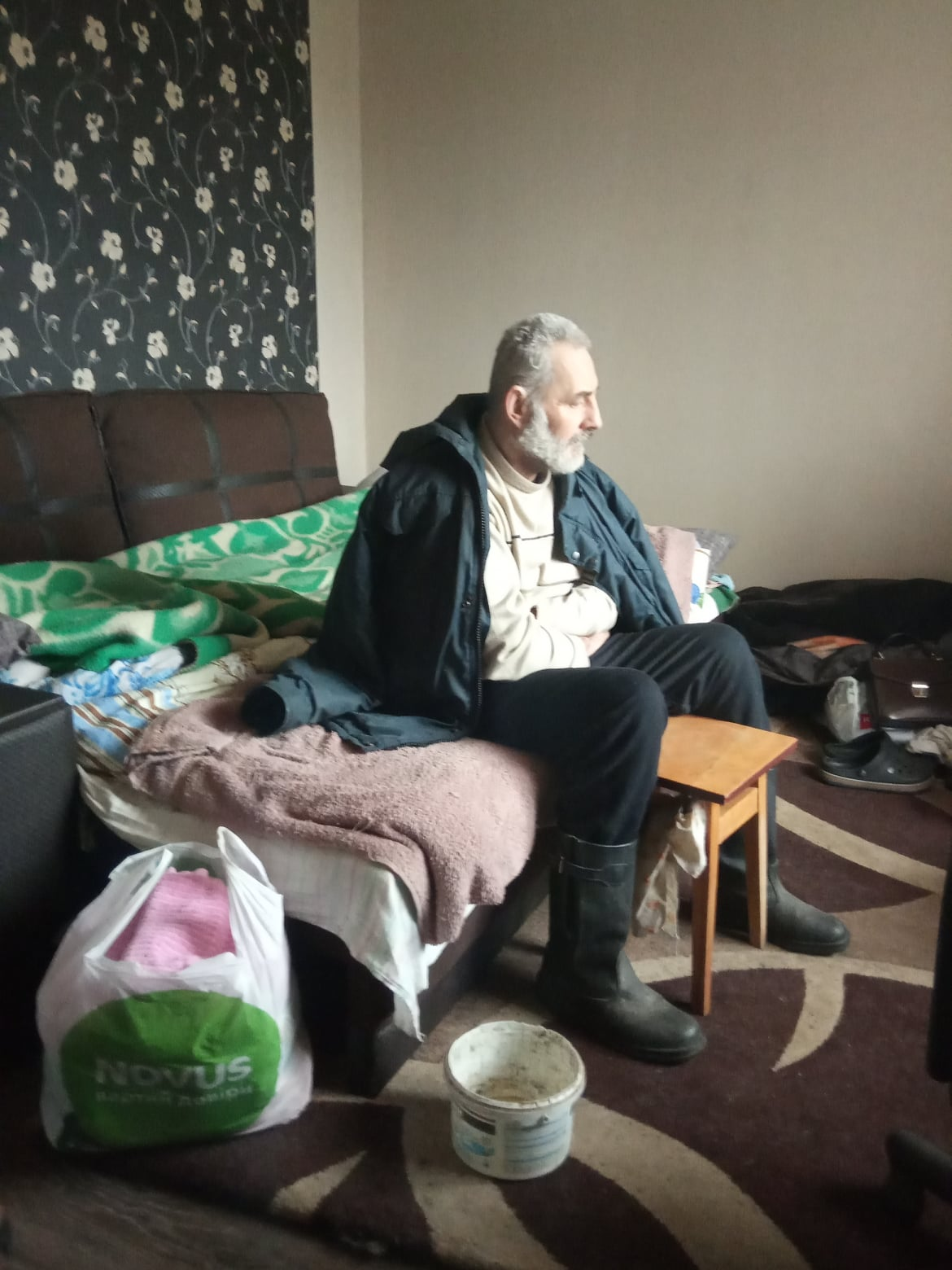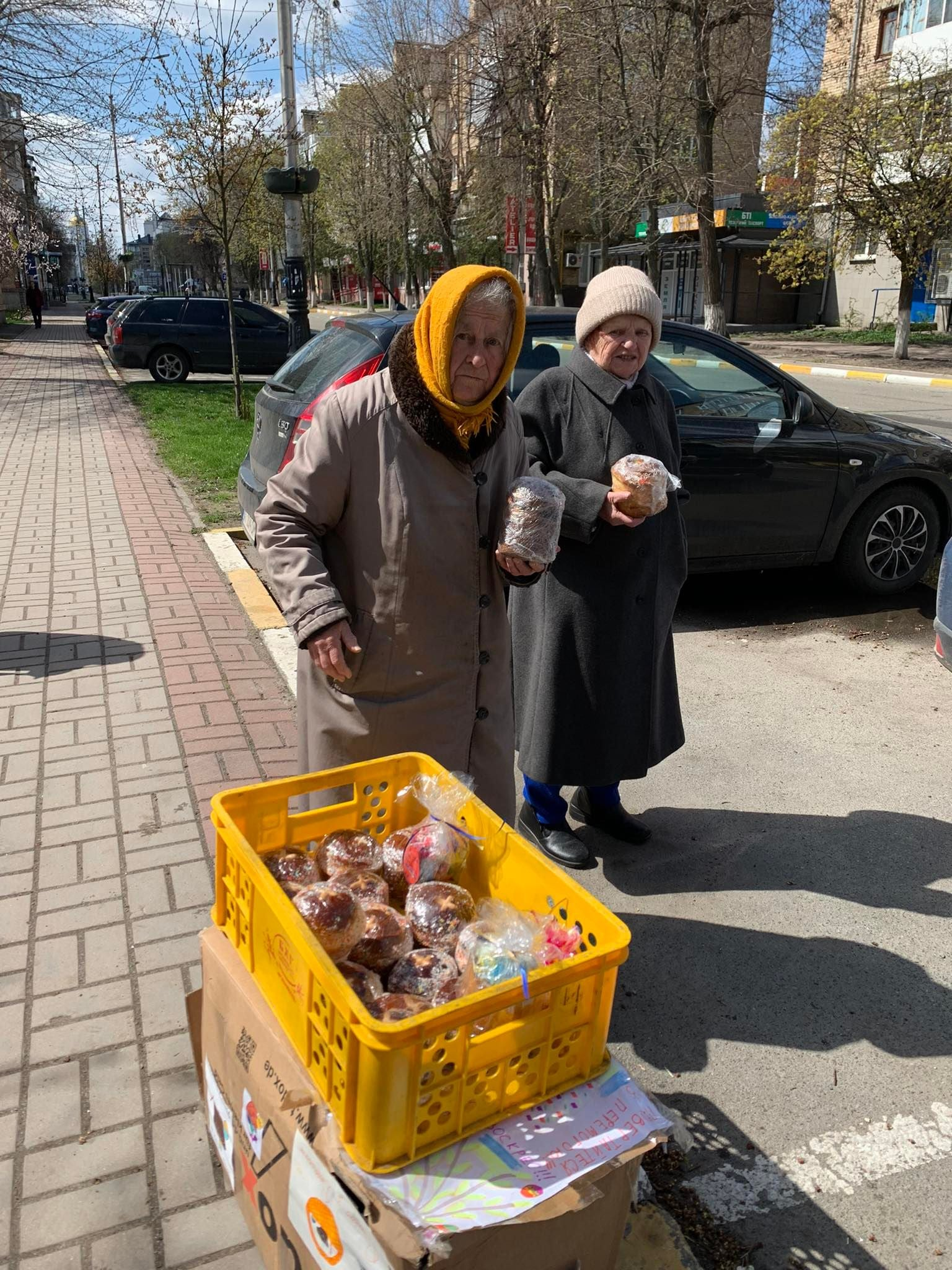My family and I lived in the wonderful, cosy town of Bucha. I loved my job as a wildlife vet, and my husband had just returned from a year-long scientific expedition to Antarctica. We often walked with our children in the park and went to visit our parents every Sunday.
On 24 February 2022 our whole life changed. Our town was occupied by Russian armed forces. We had to survive in any we could, and save the lives of people and animals in inhumane conditions. My husband took up arms and went to the front line to defend our country.
The hell of the occupation lasted for 33 days. I saw my neighbours killed in the streets of a peaceful city. I saw sadistic Russian soldiers who raped, killed and robbed us. There was no electricity, water and heat in the city.

One of the author’s clients during the Russian occupation of Bucha (photo taken by the author).
We also lost all internet. We had to do all we could to survive. Russian soldiers came to my vet clinic and beat me. But that did not stop me. I continued to bring food, water and medicine to people in the bomb shelters and treat them. I also survived an attempted rape.
Russian soldiers behaved like wild animals towards women. I explained to all the women in our bomb shelter what to do to avoid being raped: rub your eyes and nose until red to simulate a cold, wear dirty long clothes and dirty your face, constantly cough and sneeze, don’t comb your hair and do not brush your teeth. The topic of sexual violence against women during hostilities has become especially important to me, because such war crimes often go unnoticed. Women are ashamed and do not ask for help. But I want to draw the attention of human rights organisations to female victims of sexual violence committed by the military.
In the second week of the occupation, my children escaped from the city with strangers and we lost contact for 2 months. I didn’t know where they were, they didn’t know if I was alive. On their own, they flew to Australia to our friends, who took them in to save them. I survived 33 days of hell. I was able to save all my patients, animals and people. Everyone was very hungry, but they survived. Our house is destroyed, many of my friends are killed.

Ukrainian women leave the bomb shelter to obtain food (photo taken by the author).
Now I am in Australia with my children. Every day we read news about Ukraine and communicate with relatives. Physically we live in Australia, but spiritually we are in Ukraine. It seems to me that I am a plant that has been uprooted. And that I’m walking backwards, with my gaze fixed towards the past. I believe that I survived because I am a wildlife vet and my behaviour towards the Russian soldiers was like that of wild, hunted animals: I did not look them in the eye during interrogations, I did not show any emotions, I behaved very calmly, I did not make any unnecessary movements and did not annoy them.
Now I am helping my country here in Australia. I’m going to rallies to draw attention to this inhumane war, I’m buying and donating warm things, and food for people and children for the winter.
And most importantly, I believe in victory.
To make a donation to help Ukraine with humanitarian or non-lethal military aid, medical supplies, or to assist displaced Ukrainians in Australia, visit the Donate page on the Australian Federation of Ukrainian Organisations’ website.

